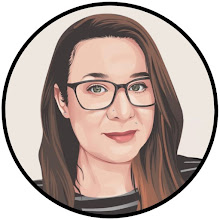By Amanda
"Oh, well of course I believe women are equal but I don't support them being constitutionally recognized as such because....."
"wouldn't the professional sports teams have to include both genders? I'm sorry, but sports wouldn't be as enjoyable for me any more if there were women playing alongside men."
"I want the least female involvement in the military possible."
"they would compete for all of the higher-level positions held by men. Who would be doing secretarial and sales work? Those positions need to be filled too, you know."
"women need a lot of time off from work for having babies and child care and stuff. Equality means we'll have to force employers to give equal pay when it wouldn't really be fair."You may or may not have heard these things, similar things, or completely different objections altogether. We have some basic themes implied here:
"I don't want there to be an opportunity for women to make 'bad decisions' and policies for themselves, like the right to access abortion services or free birth control."
- Women can only be trusted to make decisions, specifically decisions for themselves, if they are the decisions others want them to make. They're not really capable of speaking for themselves or representing the needs of women as a group.
- Women are really just possessions. They can't be seen equally to men because it would ruin things that men enjoy, like sports teams.
- Women are just an inconvenience to others. They can't have equality because their value to various institutions in the U.S. is not equal to that of a man's.
Being told being adopted makes you unequal conjures the same feeling. Here we look at some objections to adoptee equality (meaning, wanting the same access to your original identity and original birth certificate that all others receive) that you might hear a legislator or an anti-rights group say:
"Well, of course I support adoptees, but if we gave them equal access to OBCs....."
"they would 'bang down' the doors of their original mothers and 'disrupt' their lives."Here we see some basic assertions and themes made about adult adoptees:
"pregnant women would all have abortions instead of choosing adoption if they know adoptees can access their OBCs whenever they want. Adoptees should just be grateful they weren't aborted."
"no one would want to adopt any more. People don't adopt for their children to be recognized as members of another family. They adopt to build their own families. This would catastrophically impact adoption rates."
- That adoptees as a group can automatically be assumed to be less likely than anyone else in the rest of the general population to be able to maturely handle their own interpersonal relationships with their own family members without government involvement. Are we not fully human then?
- That adoptees can be equally compared to abortion issues. Anti-choice advocates will say a fetus' rights outweighs a mother's right to privacy and decision making in her own health care. But then they flip-flop and say that the individual who has been born's rights are outweighed by a mother's alleged desire for secrecy. Does anything say we are not fully human, more than this? **
- An adoptee's place in their family is to be what others want them to be: not to have their own desires, wishes, reality, and individuality respected. Possessions. Are we not fully human then?
People say "gracious me!" to the adoptee rights activist, "what will your adoptive parents think?!" I say right back: "my adoptive parents support adoptee rights too!"
The response to undrafted, unaddressed, and unpassed Adoptee Rights bills is perhaps the same to the response to the unratified ERA: "you are basically equal. Is it really that big of a deal?" Some fields are becoming less gender segregated, and in some, women earn near enough as men. Women are surpassing men in some areas of educational attainment. We can vote and hold political office; we have a voice in government. Women are almost equal, say some, does it really matter whether or not it is recognized by the Constitution? In the eyes of others, all adult adoptees are lacking is a "piece of paper." We're pretty much equal other than that, so what's the big deal? They fail to recognize that if that "piece of paper" were accessible in all 50 states, then it would become common knowledge that OBC access has nothing to do with abortion or adoption rates or adoptees having a higher likelihood of disrupting other's lives: those not quite human stereotypes would likely, hopefully, go away. Women are pretty much equal and what stands in the way of adoptee equality really isn't that big of a deal, some say.
If it's not a big deal, good, this should be simple then: PASS THE BILL.
**My purpose of mentioning this is to say what are speaking for mothers. I acknowledge that this is not necessarily how mother's feel themselves.


